Pancreatitis is a serious illness that can occur in both cats and dogs. For cats, the main concern is the development of pancreatic cancer, which is a relatively rare condition in this species. However, pancreatitis can also lead to fluid accumulation in the abdomen (known as ascites), weight loss, and poor appetite. In fact, pancreatitis is one of the most common causes of death in cats.
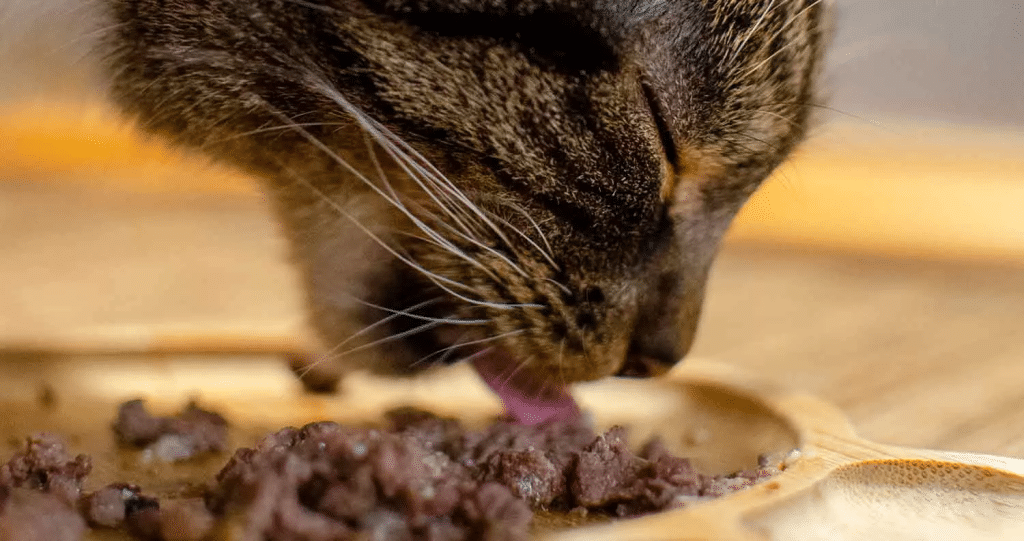
Source: google.com
What Exactly Is Pancreatitis?
Pancreatitis is defined as any inflammation of the pancreas. The pancreas is a small but vital organ that secretes insulin and digestive enzymes to aid your cat’s digestion.
Pancreatic inflammation is most common in cats over ten and is frequently associated with other inflammatory disorders, most notably inflammatory bowel disease and cholangitis.
Lethargy and loss of appetite are the most typical symptoms of pancreatitis. Cats with pancreatitis may vomit, experience stomach pains, develop a fever, or exhibit other indications of sickness.
Pancreatitis can be acute and cause severe symptoms, or it can be persistent and regularly cause mild to moderate discomfort.
Pancreatitis Is Caused By What?
The pancreas secretes insulin and digests enzymes. Dr Karen Becker contends that a high-carbohydrate, highly processed diet puts undue strain on the pancreas. After all, the pancreas is responsible for producing digesting enzymes and releasing insulin.
A highly processed diet lacks digestive enzymes and often floods the body with carbs, causing the pancreas to work extra hard to produce enzymes and insulin. According to Dr Becker and others, this diet eventually wears down the pancreas.
No proof that processed food promotes pancreatitis, no matter how enticing the theory sounds. Determining what causes pancreatitis in a specific patient is quite tricky. A variety of factors can cause pancreatitis.
A Few Pancreatitis Causes:
Intestinal inflammation causes pancreas injury.
Abdominal physical trauma
Toxoplasmosis, FIP, and herpesvirus are examples of infectious disorders.
Infection with parasites
Lipidosis of the liver
Cholangitis
Use of drugs such as phenobarbital, anabolic steroids, and diuretics
Pancreatitis Symptoms
Pancreatitis is a potentially fatal disease that can affect any animal but is usually found in cats. When the pancreas becomes inflamed and unable to function correctly, this results in pancreatitis. This can cause a wide range of symptoms, varying according to the disease’s severity. Vomiting, diarrhea, fever, decreased appetite, weakness, and loss of energy are all common symptoms of pancreatitis in cats. If you see any of these signs in your cat, make an appointment with a veterinarian as soon as possible.
The Best Food For Pancreatitis In Cats
Pancreatitis is a potentially fatal medical illness that can affect cats of any age. In certain situations, the problem may go undetected until it is too late; pancreatitis in cats can be fatal. You can take a few steps to ensure your cat receives the best care possible if they develop pancreatitis. Here are five of the most excellent diets for pancreatitis in cats:
1. Stella & Chewy’s Raw Absolutely Rabbit Dinner Morsels Cat Food
Many believe that pancreatitis patients benefit from a diet high in enzymes and minerals in raw meat. This freeze-dried food is a more handy option than fresh meals. It’s mostly made of rabbit, a natural component of the feline diet and a highly digestible source of nourishment. It contains probiotics, which may aid in the reduction of inflammation in the body. There are no potentially inflammatory elements in the cuisine.
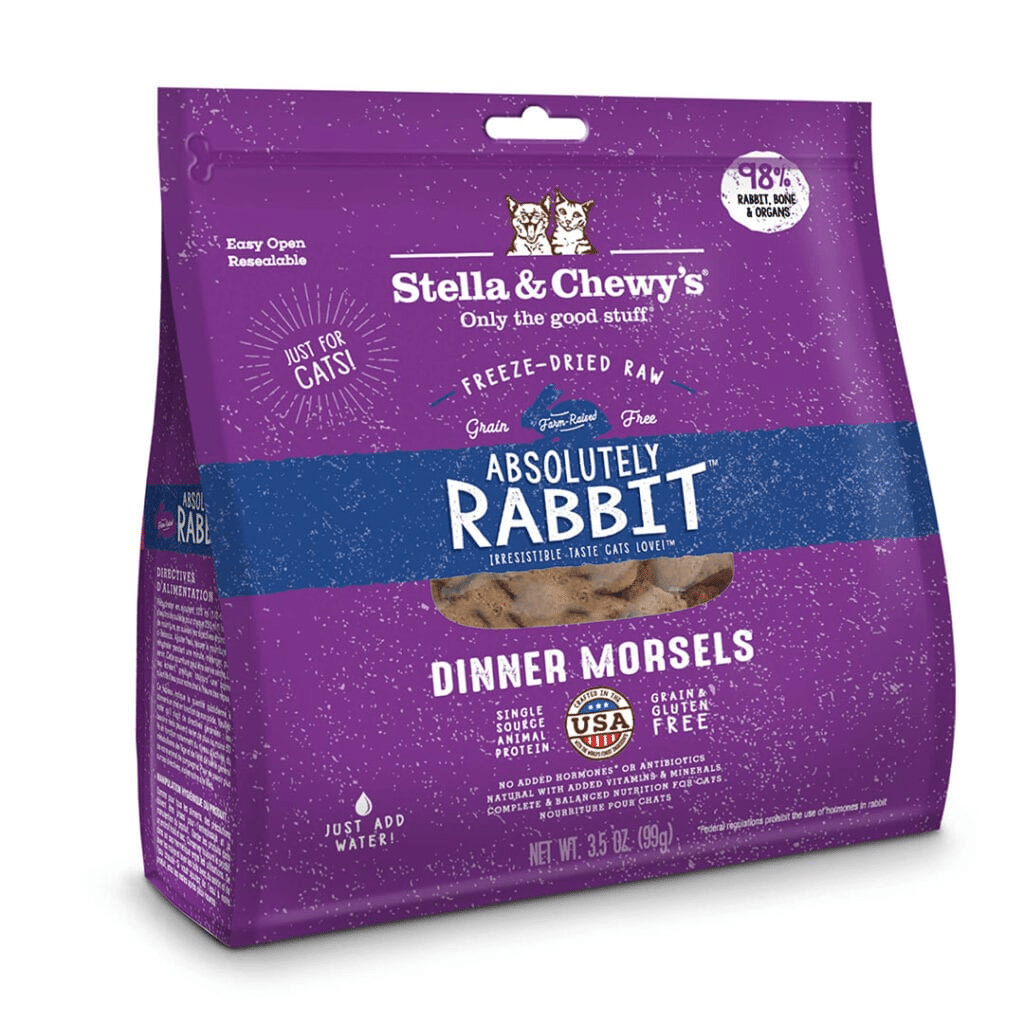
Source: google.com
2. Canned Ziwi Peak Lamb Grain-Free Cat Food
This lamb-based diet is made mainly of species-appropriate meat, giving your cat the nutrition they require in an easy-to-digest style. In addition to lamb muscle meat and organs, the diet contains lamb tripe, which provides digestive enzymes that may aid pancreatic support.
It contains no carrageenan or other chemicals that may cause inflammation.
This dish has a high digestion and palatability rating. According to client feedback, most cats enjoy the taste of the food.
Like all Ziwi Peak products, this canned food is pricey and unsuitable for all budgets.
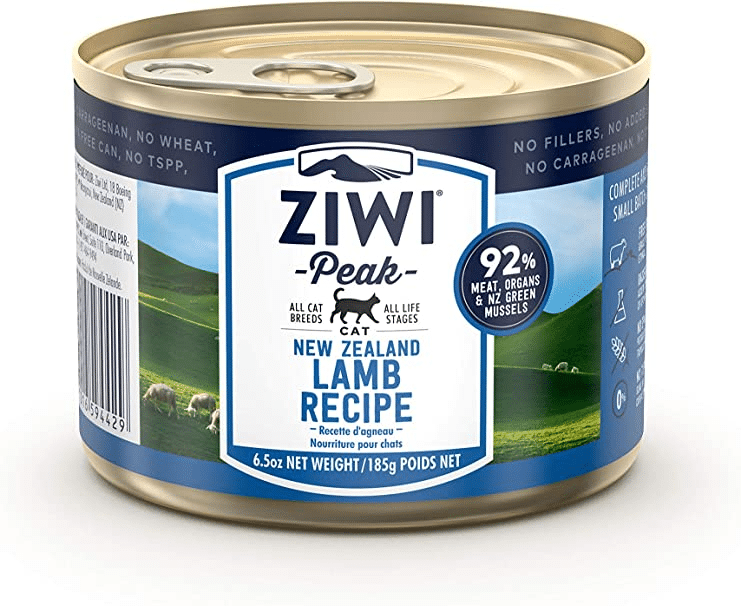
Source: google.com
3. Nature’s Variety Instinct Grain-Free Real Duck Recipe Natural Canned Cat Food
Because duck and turkey make up 95% of the composition, it is easier for cats to digest and consume. This food comprises plant elements that aren’t necessary or helpful for an obligate carnivore, in addition to duck and turkey.
However, it lacks potentially inflammatory components such as carrageenan, artificial colours, and chemical preservatives. It contains menhaden fish oil, a naturally occurring source of anti-inflammatory omega-3 fatty acids.
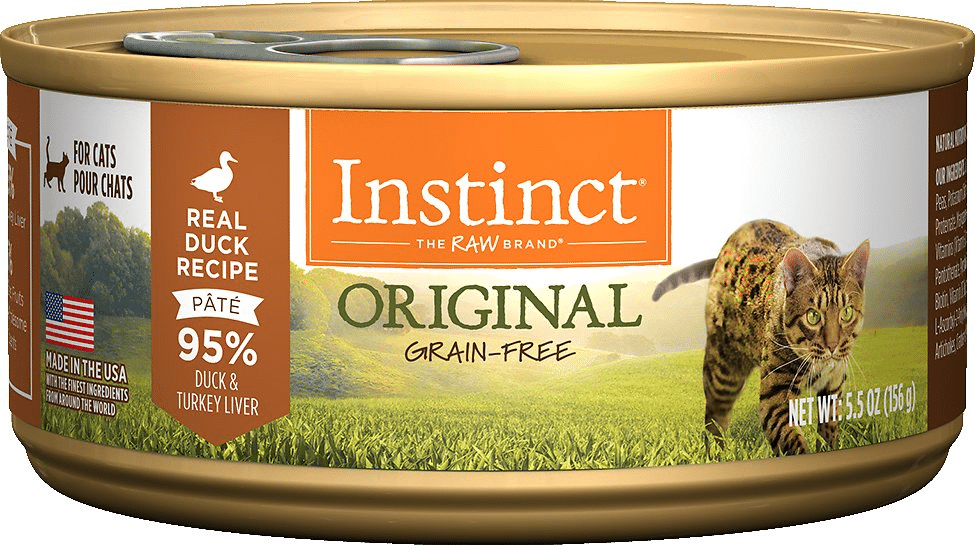
Source: google.com
4. Lotus Just Juicy Venison Stew Grain-Free Canned Cat Food
This diet is mainly made of venison meat, a novel protein for most cats that may aid in soothing sensitive tummies.
It’s a highly digestible, low-residue diet that burdens your cat’s digestive system less.
The food contains omega-3 fatty acids to help prevent inflammation and is free of potentially inflammatory substances like carrageenan and other needless chemicals.
On the downside, the cuisine is costly and uneven. Customers report that some cans included finely chopped beef, and others contained lumps.
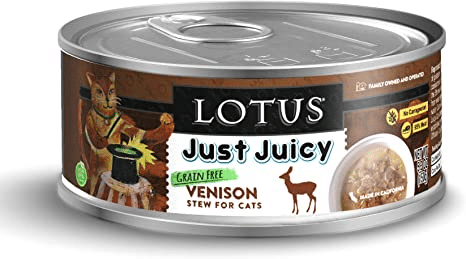
Source: google.com
5. Wet Food Open Farm Homestead Turkey Rustic Blend
If your cat has pancreatitis, he requires a high-quality, readily digestible diet high in animal protein and low in inflammatory components. This Open Farm turkey taste wet food is an excellent choice for cats suffering from pancreatitis.
This wet food’s primary ingredient and sole animal-based protein source are ethically reared turkey. Turkey bone broth adds moisture and natural turkey flavour to this recipe, making it both tasty and straightforward to digest for your cat.
While this formula contains various plant-based ingredients, it does not contain inflammatory additives such as carrageenan, artificial colours, or flavours. The overall carbohydrate level is slightly higher than our advised maximum of 10%, and there are no fillers or animal by-products.
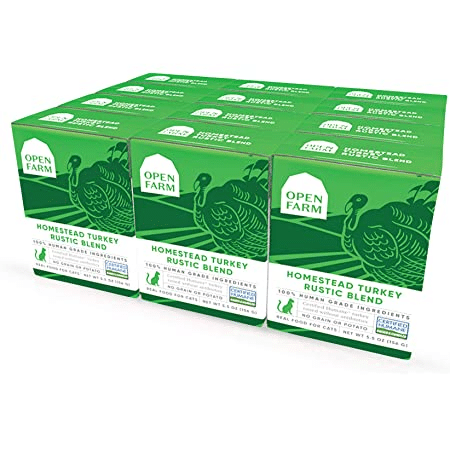
Source: google.com
Understanding Pancreatitis
Whatever the reason, pancreatic inflammation causes digestive and metabolic enzymes that are usually held inside to be released too early. Then they begin consuming the organ itself. They can enter the bloodstream and induce inflammation in nearby organs, such as the liver. The pancreas can heal and repair itself in difficult situations. Scar tissue replaces the cells in chronic situations, and the pancreas loses its capacity to function normally, leading to other disorders such as diabetes. Triaditis is a syndrome in cats that combines concurrent chronic pancreatitis, inflammatory bowel disease, and cholangiohepatitis, inflammation of the liver and the biliary system.
Pancreatitis Diagnosis
Cats with pancreatitis frequently lose their appetite and become sluggish. These symptoms are sometimes followed by vomiting, abdominal pain, and a change in body temperature. The clinical indicators and blood tests are used to make the diagnosis. Historically, the levels of amylase and lipase (pancreatic digesting enzymes) were the mainstays, but they can be increased for various causes. Thus alternative tests such as the PLI (pancreatic lipase immunoreactivity) and the SPEC fPL (Specific Feline Pancreatic Lipase) have been created. The veterinarian will select which tests will be performed to rule out other possible causes of the clinical indications. Cats with pancreatitis are frequently affected by hepatic lipidosis, commonly known as fatty liver disease, which results from a significant decrease in caloric intake. If this happens, the cat’s recovery will be substantially hampered.
Treatment
To control the clinical symptoms, the patient is frequently given supportive care such as intravenous fluids, anti-nausea drugs, and pain medication. Cats with pancreatitis do not appear to be as fat-sensitive nutritionally as dogs, and they are frequently placed on a highly digestible, moderate fat diet. A hypoallergenic diet may be advised if inflammatory bowel disease is considered a factor. If the condition is chronic, the patient may be required to follow a special diet for an extended period. Depending on the degree of the inflammation, other therapeutic therapies include antibiotics and plasma transfusions.
What Causes Cat Pancreatitis Flare-Ups?
Several circumstances can cause a flare-up of pancreatitis in your cat, including consuming something that irritates the stomach or digestive system or impacts the stomach, such as if your cat jumps and strikes its stomach during the jump.
How Long Does Pancreatitis In Cats Last?
Pancreatitis is typically a chronic illness that might last your cat’s entire life. However, they may only experience periodic flare-ups that last two to three days, depending on the severity of the symptoms.
Top Cat Pancreatitis Diet Suggestions
Choose delicious foods that are gentle on the digestive tract.
Highly appealing and easy-to-eat foods will increase your cat’s chances of consuming the appropriate calories and nutrients on any given day.
If the acceptable cat food recommended by your veterinarian does not work, you could try giving them bone broth or unseasoned meats that have been baked or boiled.
Meat-based and unseasoned infant food may also be acceptable.
Don’t be concerned about low-fat diets.
If you’ve previously encountered pancreatitis in people or dogs, you may know that high to moderate fat levels in your diet can aggravate the problem.
As a result, many pancreatitis patients are advised to follow a low-fat diet. On the other hand, cats and kittens are not the same as dogs or people.
Excess fat in the diet is not linked to your cat’s pancreatitis.
Consume modest, regular meals.
Forcing your cat to fast for extended periods will result in hormonal spikes, which may be dangerous for cats with pancreatitis.
If your cat suffers from chronic pancreatitis, it may be easier to divide its food into several small meals (such as six per day) rather than a few large meals.
Consider adding more digestive enzymes.
Extra digestive enzymes may also be beneficial for a cat with pancreatitis.
Because your cat’s pancreas is crucial for manufacturing digestive enzymes, it might be difficult to process food when it isn’t working correctly.
Adding digestive enzymes to your cat’s food as supplements and other “added extras” could be a practical approach to jump-start their digestion.
Green tripe, for example, is a fantastic source of digestive support for your cat.
Inflammatory substances should be avoided.
Inflammation is a typical issue in cats suffering from chronic digestive problems such as pancreatitis.
The more inflammation your cat has, the more likely they are to encounter a variety of symptoms, including vomiting, difficulty eating, and pain.
Ideally, all cat owners should avoid cat food ingredients that may cause extra inflammation in their cats.
However, if your cat has pancreatitis, you should be especially cautious with these chemicals.
Certain additives, such as additional sweets and artificial colouring in your cat’s food, are more likely to induce inflammation than others.
Conclusion
We conclude with our recommendation for the “best cat diets for pancreatitis.” Importantly, your veterinarian can perform a comprehensive examination, which may include x-rays and an ultrasound to look for pancreas inflammation.
Based on your cat’s specific needs, the vet will prescribe medicine, a prescription diet, and recommendations on the best cat foods for pancreatitis.
However, we believe the ZIWI Peak canned wet food is one of the most excellent solutions for digestibility and stomach support on the market.
It’s also a wet cat food, which should make it simpler to provide your cat with the moisture they need in their diet if they’re having difficulties drinking frequently.
FAQs
Is Salmon OK for cats with pancreatitis?
Pancreatitis is a disease that can be caused by a number of things, including eating too much fatty food. Salmon is typically low in fat, so it should not be an issue for cats with pancreatitis.
What percentage of cats survive pancreatitis?
The percentage of cats that survive pancreatitis is unknown.
